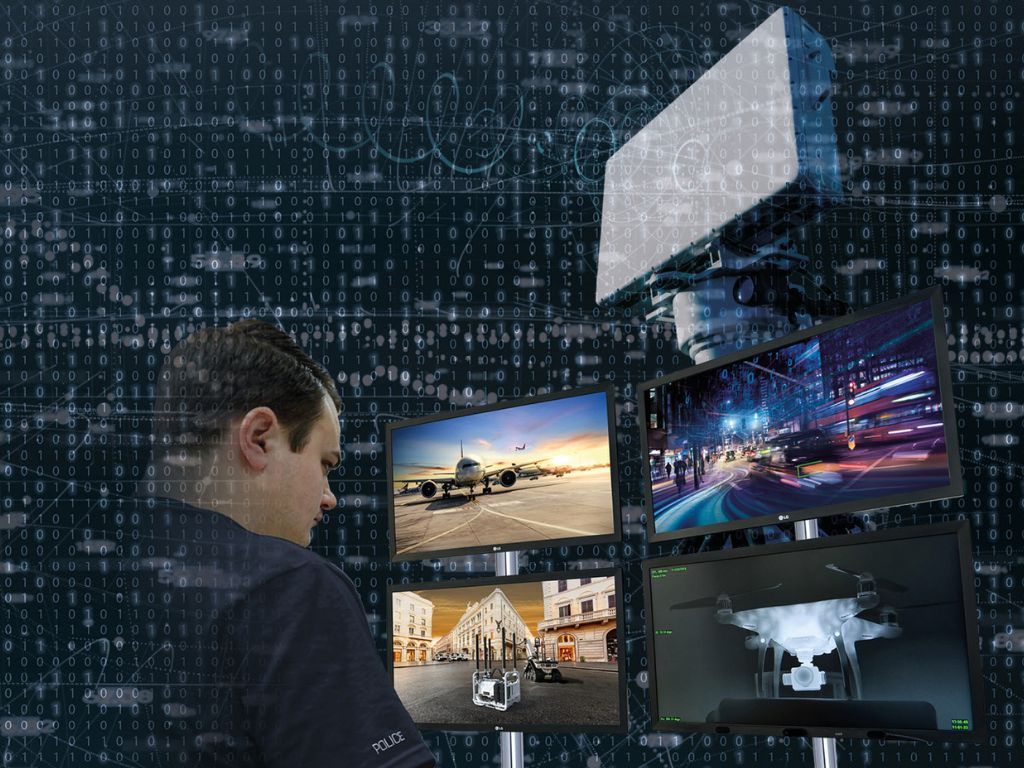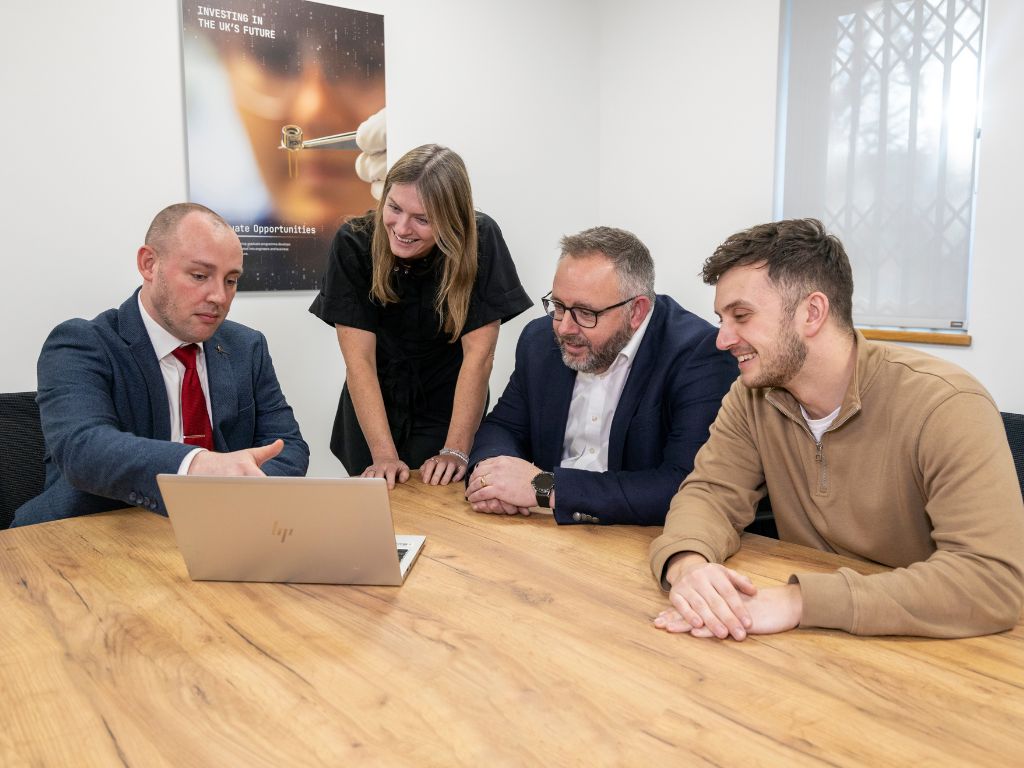Here to delve into the procurement strategy behind Leonardo’s innovations is Gareth Fisher, Head of Procurement of the UK Cyber & Security Solutions Division, in this exclusive Q&A.

What are your top priorities for Leonardo Cyber Security Solutions’ procurement strategy, and how do they align with the company’s overall goals?
The UK procurement team is responsible for aggregating the company’s buying power at UK level for common areas of spend and economies of scale, while connecting globally across Leonardo – bringing further value with commonality, identity and influence.
In effect, we are creating one united procurement voice for all areas – from local project teams to national and international bodies. This features in the overall UK procurement strategy and ultimately, our obligations to the overall company strategy.
My priority as Head of Procurement is to deliver the best value for our customers whilst cultivating an environment of collaboration and innovation. This maximises our competitiveness and agility while ensuring the business is protected in this highly regulated industry.

I can only achieve this by nurturing and developing the fantastic people within Leonardo’s UK Cyber & Security Solutions division, creating an environment that breeds talent and empowering teams to deliver discretionary effort with increased efficiency and capability in mind.
This all starts at the ground up by working smartly. As a cyber & security business, it is essential that we use collaborative tools as effectively as possible, which only be fully leveraged when combined with the necessary policies, processes and cultural change. For change to be successful it needs to be seen as the pain relief to a common organisational headache.
As this division has matured, we have created a pre-sourcing function within our procurement arm consisting of a team of specialists who engage at the initial stage and provide the business with the insight required to make the most informed decisions about potential suppliers. We also apply this to our existing suppliers, using our knowledge and past experience with them to further relationships
How do you approach leadership in a procurement role, particularly in a complex and regulated industry like aerospace and defence?
Within the Cyber Security Solutions Division, we drive an outcomes and key results culture, which inspires the team to feel empowered and supported. Objective & Key Results (OKRs) are monitored monthly, ensuring individuals can see how their direct input impacts the success of the business in delivering its objectives.

This creates a direct link between individual employees and the strategic direction of the business, something that can often be lost. With an approach like this, our team is confident that if we are doing the right thing for the right reasons, the business will support us.
A notable example of this was our transition from a historical sole-source arrangement with a single supplier to a dual source arrangement. We identified an opportunity to improve our supply chain resilience whilst providing the possibility for greater value.
The industry was highly regulated and incredibly specialised which had led to this previously sole-source arrangement. We were able to leverage our supply chain cyber assurance service to work with both businesses to increase their cybersecurity resilience, as well as increasing the supply base for the needs of the customer. This has increased our resilience in the supply chain while driving greater value for the customer.
There are tough conversations to be had when high-value historical relationships exist, but in this evolving supply chain landscape we must be increasingly resilient and effective with the resources we have.
This is especially important when navigating such a complex business environment as ours. Maintaining high standards in governance and assurance is vital, and for me this is a leading role in the procurement function. I constantly review expectations made upon the function, and I view building a team that helps to deliver on all fronts a key part of any head of department role, not just procurement.
How is Leonardo UK incorporating innovation into its procurement processes to enhance efficiency and reduce costs?
There are key areas within the Cyber & Security Solutions division that have massively benefitted from innovation and developing our business culture.

We have deepened ties with our key stakeholders through frequent, honest engagement across the business. People from all departments are encouraged to foster relationships to ensure everything is working as efficiently as possible – from operations to finance, logistics to administration. Over the past 18 months, there has been a real focus on long-term cultural change, embedding this into all relationships moving forwards.
We have also worked to centralise our key data to enable more effective management and visualisation for a range of scenarios. A specific example of this would be how we have standardised and centralised the requisition to purchase order conversion time. We set ourselves competitive targets to meet – and with this centralised data visualised in an instance, we can diagnose potential problems earlier to speed up the process overall, producing savings and benefits.
We empower our people to test, implement and adopt continuous improvement methodologies such as these. Continuing this work is a priority for me, and something I am personally excited about as we continue on our journey to ensure the function is equipped and prepared for growth.
What role does digital transformation play in your procurement strategy, and how are you leveraging technology to optimise supply chain operations?
Digital transformation is the foundation to building a more agile, sustainable and modern procurement function. It unlocks capabilities in effective procurement strategies that we could only have dreamed of decades ago.
We are leveraging technology throughout our operational procurement processes – automating data, creating more accurate information and presenting it in a way which is easier to consume. This all allows for more data-led decision making.
Our internal supplier forum monitors the performance of our suppliers using a range of tools including the industry-standard ‘Joint Supplier Accreditation Register’ (JOSCAR). In the past, our teams would reach out to individual suppliers and collect any critical information, from policy certification to sustainability practices. Today, this is standardised with embedded automations – making our teams’ lives easier.
Training our procurement teams to have more of an understanding in the emerging technologies within the market allows the function to integrate more within technical teams, helping to provide valuable input into requirements. This helps us collaborate with our partners more effectively, improving cost efficiencies all round.
How do you maintain strong relationships with suppliers while ensuring that they meet Leonardo UK’s high standards for quality and performance?
We have held ISO44001 accredited programmes and projects, which means we follow the international standard for establishing and maintaining effective collaborative relationships. We do this by utilising intelligent supplier relationship management mechanisms.
This accreditation enables us to identify businesses that are fundamentally key to our success, and develop a tailored program to maximise the benefits of working together for both parties. We have established regular touchpoints where we score the relationship on transparent feedback sharing, risk identification and mitigation, while exploring future opportunities.
In a digital age, it can be easy to inadvertently inherit the cyber risks of your suppliers – or vice-versa. Our working practices are compliant, robust and collaborative, positioning us as one of the best in the industry.
What strategies do you use to manage risks in the supply chain, especially considering global disruptions and geopolitical challenges?
We have systems to analyse the supply chain and data resilience, reducing the risk of disruption and making a more resilient chain overall in the process.
The key step change for us has been in managing the increasing complicated and critical cybersecurity risk in our supply chain. By partnering with a Small Medium Enterprise (SME) in the cyber domain, we have been able to unlock exciting capabilities and develop a Cyber Security Assurance service.
We now undertake tailored risk assessments with each supplier, working closely with them to improve their policies, processes and compliance. By providing our in-house technical abilities, we’re able to support the development of the SMEs we work with, removing barriers to entry into an industry which is notorious for its difficulty to penetrate.
This approach enables us to manage our supply chain risk both strategically and operationally at project level, by category or supplier. This service has fundamentally changed the way we onboard and assure our suppliers, creating a robust mechanism through which we can understand and mitigate any enterprise risk.
After seeing an appetite for this service, we’ve scaled up our operations to offer it out to industry customers. All businesses are waking up to the increasingly complicated cyber risks to their own supply chains, and as a procurement and supply chain professional, it’s exciting to contribute to the industry in such a way.
How is Leonardo UK integrating sustainability into its procurement practices, and what initiatives are you leading in this area?
Ensuring our supply chains are sustainable, resilient and agile is one of our primary focuses. It is critical to ensure that the businesses we rely on today are still here tomorrow, so supply chain resilience under the UK’s prosperity agenda is a top priority, with cybersecurity assurance our key focus.
Supply chains can provide or hold sensitive information, which if compromised, could have a detrimental impact on the organisation and beyond.
We have recently collaborated with an exciting subject matter expert to give a cybersecurity assurance service not just internally, but externally in the wider market too. There is an absolute need for this to be built into sustainability strategies everywhere.
What measures are in place to ensure ethical sourcing within your supply chain, particularly when dealing with international suppliers?
Leonardo UK works closely within our existing supply base, as well as with new suppliers as we on-board them, to ensure they comply – and maintain compliance – with UK and international laws. We also regularly audit and review our supply chain to verify this compliance.
Along with our corporate ethics and sustainability initiatives, clauses are included in our standard General Conditions of Purchase (GCoP) issued with every Purchase Order that specifically cover ethics, sustainability and modern slavery, maintaining the right to inspect records.
Where do you see the future of procurement heading in the aerospace and defence sector, and how is Leonardo UK preparing for these changes?
I see the sector’s immediate focus as strengthening the UK’s national security and building increased resilience in a robust supply chain infrastructure. By focusing on collaboration with customers and suppliers, we’re able to address challenges and opportunities ahead.
We are using our unique insight and industry levers to help shape policies that balance economic pressures, next generation technology, and geopolitical complexities. Key to this is long-term strategic planning, vital to anticipating and mitigating potential disruptions to the supply chain. Resilience is key, and we must invest in these initiatives to enhance our adaptability to market trends and regulatory pressures.
It is thanks to the positive relationships we have developed with our suppliers – both in terms of regular contact and seamless collaboration – that we can ensure continuity of supply and manage expectations. We know what is required to make ourselves more agile, resilient and robust, and have committed to creating that balance in our procurement strategy.
How do you stay ahead of emerging trends and challenges in the procurement landscape, and what is next for Leonardo UK’s supply chain strategy?
Being aware of your supply chain is vital to staying ahead. At Leonardo UK, we have been focusing on building key partnerships and developing subject matter experts. This gives us a structured approach to building resilience and allows us to tap into innovation.
We deliberately pick suppliers who have a clear vision for the future, so that we can support them and mutually benefit one another. Our wider procurement teams ‘meet the market’ monthly, as we are firm believers in proactive engagement with all our key suppliers. We want to work with them on any potential issues, hear their short-term and longer-term insight, and understand any upcoming opportunities we may be able to collaborate on.
In the future this is something we are keen to extend to our customers – allowing greater visibility of the supply chains that support their capabilities and help them further develop their knowledge of the marketplace to better define the requirements of the future.
I am incredibly passionate about working with SMEs, and as such we set ourselves a target percentage spend to ensure that we are breaking down the barriers for ‘doing business with defence.’ This year we have exceeded our target for SME spend and are incredibly proud to be supporting SMEs in the industry. I consider myself very privileged to work alongside such talent.
Learn more about Leonardo here.
ADDED VALUE
Taking responsibility
Opportunities to excel, develop and gain experience are all around us. There are always areas of a business that can be improved, and taking responsibility for a solution can make a significant difference – for both the business and your personal career.
Many years ago, I worked as a chef. I had a boss who would place a piece of rubbish in the path of an individual on a trial shift within the kitchen, to see if the person would notice and put it in the bin. Over the years, this has served as a reminder to always search for opportunities to improve the conditions you find yourself in.
Chartered Institute of Procurement and Supply
I would encourage anyone interested in procurement to become a Member of the Chartered Institute of Procurement and Supply (CIPS). As a member, I have been fortunate enough to learn about best practices outside of my industry, which has helped my development throughout my career. I currently hold my MCIPS with chartered status, and hope to work towards a Fellowship of CIPS in the near future.
Newsletter Sign Up






